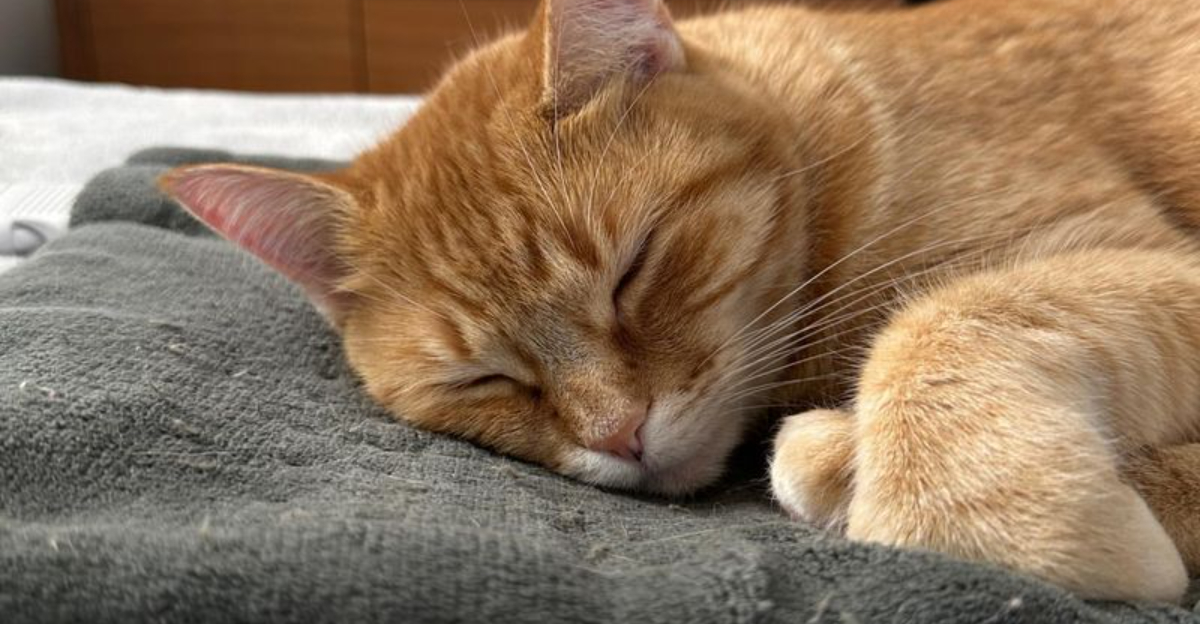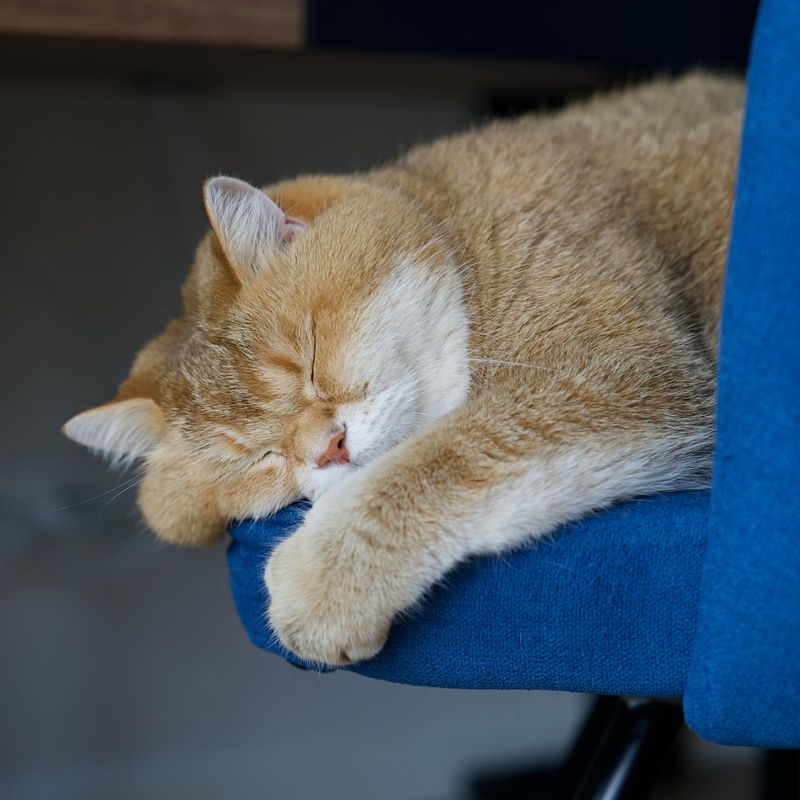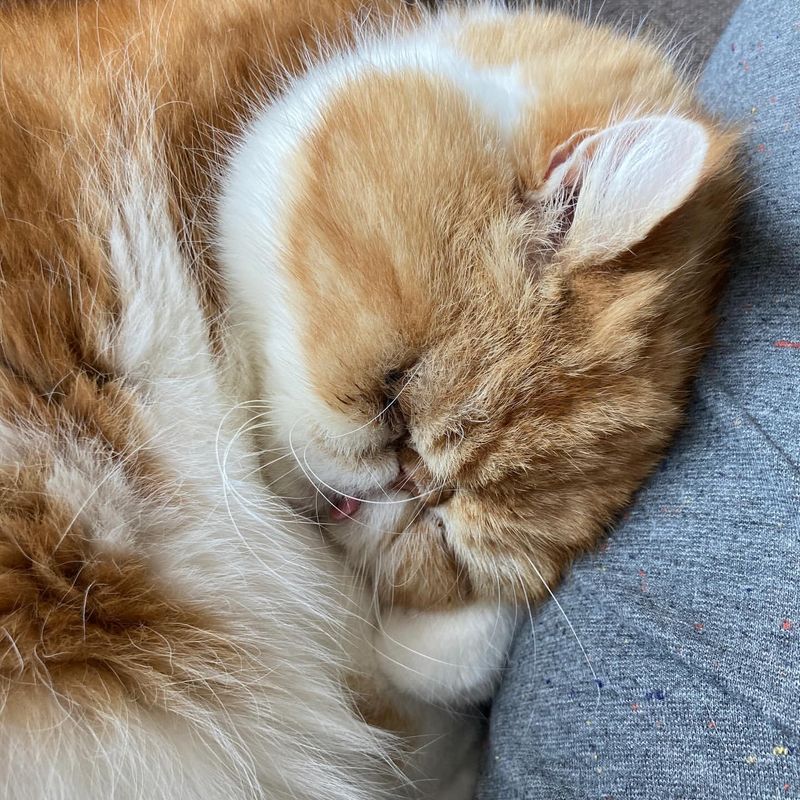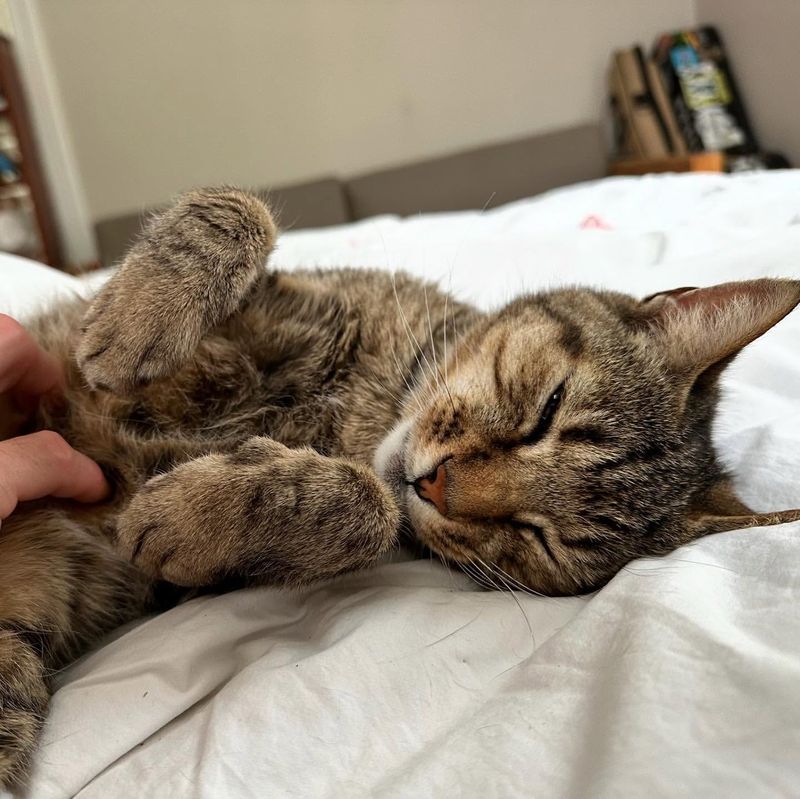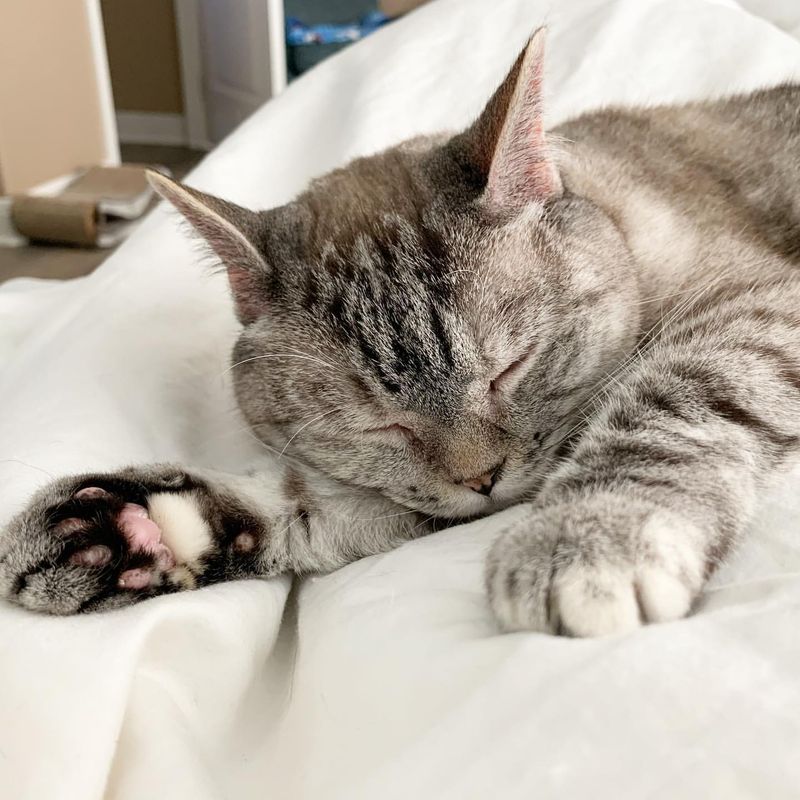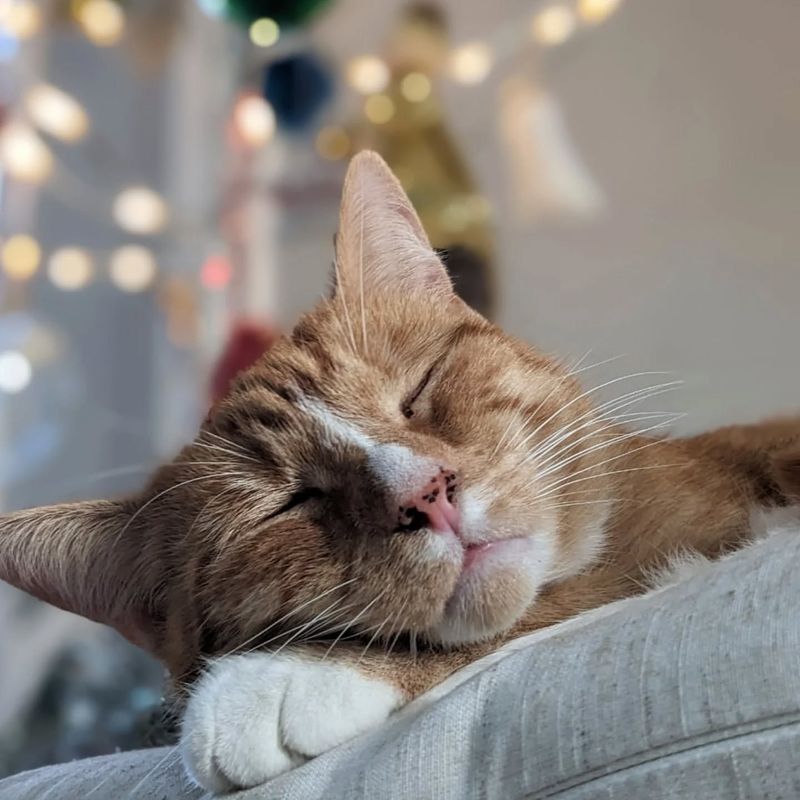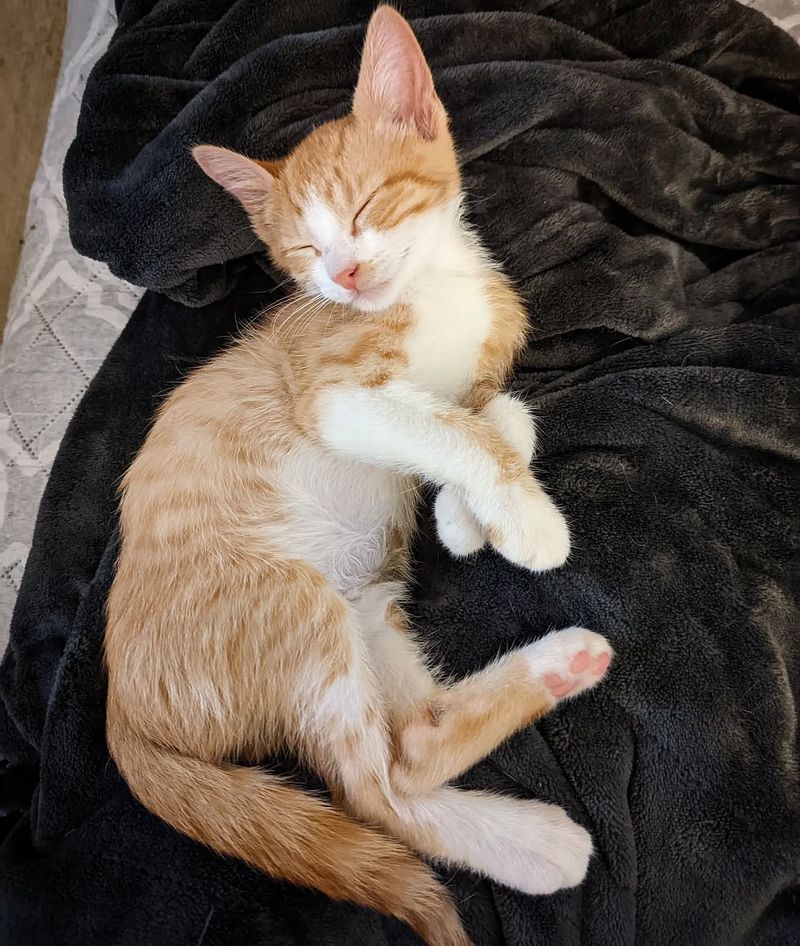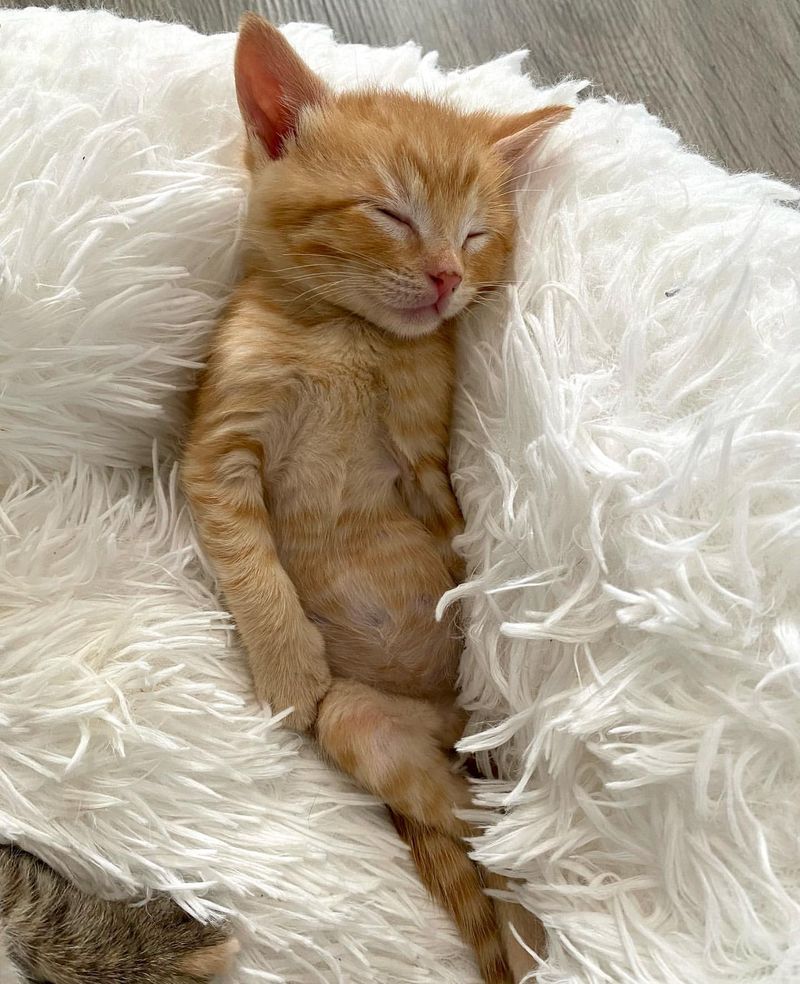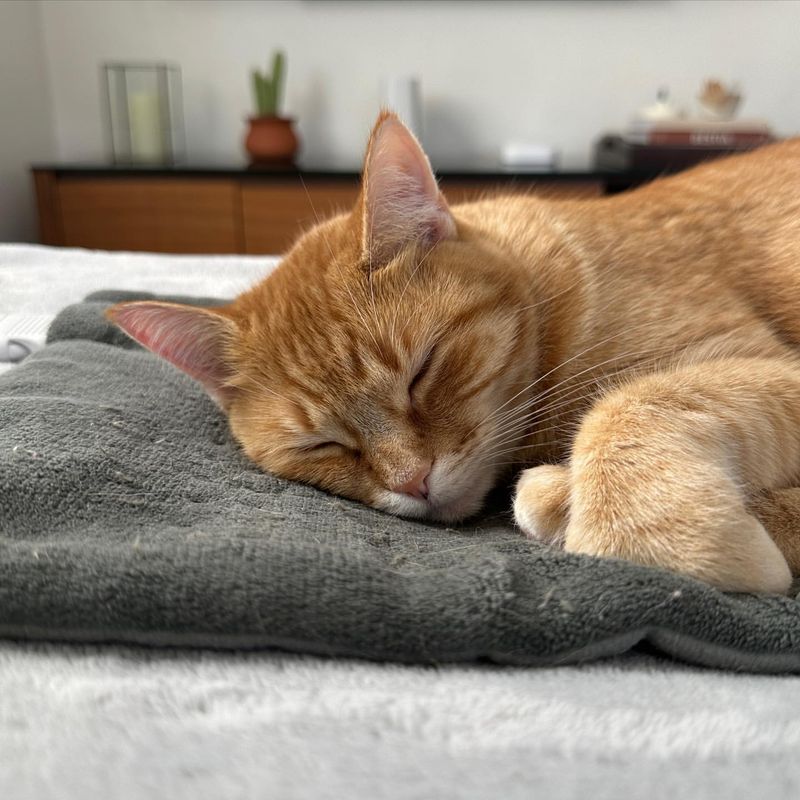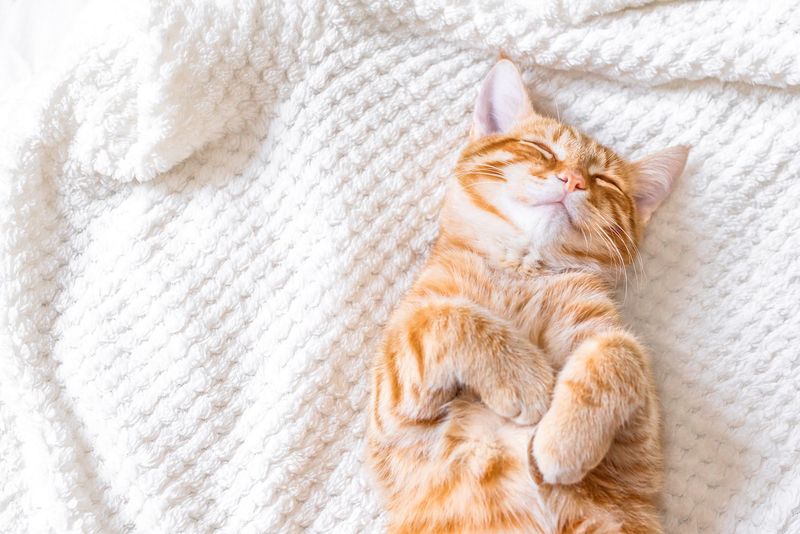📖 Table of Content:
Cats are renowned for their love of sleep, often surprising owners with how much time they spend napping. The sight of a cat curled up in a cozy spot is a common one, but it often leaves people wondering why they sleep so much. Understanding the reasons behind their lengthy naps reveals more about their behaviors and needs.
Sleep is vital for cats, not just for rest but also for their overall well-being. While we may assume that cats simply enjoy lounging, there are deeper, biological reasons for their love of sleep. From energy conservation to health maintenance, naps play a significant role in their daily lives.
Cats are creatures of habit, and sleep is an essential part of their routine. Whether it’s their instinct to hunt or their need to recharge, each nap serves a unique purpose. These 9 surprising reasons behind a cat’s sleep patterns provide a closer look into the fascinating world of feline rest.
1. Energy Conservation
Cats are natural hunters, and in the wild, they need to conserve energy for chasing prey. This instinctual behavior translates into long periods of rest in domestic cats too. By sleeping, cats can store energy for those exciting moments of play or sudden bursts of activity.
While your indoor cat might not be hunting, the energy conservation habit persists. It’s their way of staying ready for any playful pounce, even if their biggest leap is onto a sunny windowsill. Their body is always in a state of preparation, reflecting their wild ancestors’ needs.
2. Growth and Development
Just like human babies, kittens require a lot of sleep to support their rapid growth and brain development. Sleep is crucial for their physical and mental maturation. During sleep, a kitten’s body releases growth hormones, essential for developing strong bones and muscles.
Even adult cats benefit from these restful periods as they repair tissues and maintain overall health. Providing a comfortable and quiet sleeping environment helps support your kitten’s healthy development, making sleep an essential part of their early life stages.
3. Safety and Security
In the wild, cats are both predators and prey, making sleep a vulnerable time. Finding a safe, hidden spot to rest ensures they can relax without fear. This instinct is still present in domestic cats, who seek out cozy and protected places to nap.
By choosing a secure location, they can sleep soundly, knowing they’re not exposed to potential threats. Whether it’s a snug corner or a high perch, your cat’s choice of sleeping spot reflects their need for security.
4. Temperature Regulation
Cats sleep to regulate their body temperature, finding sunny spots to warm up or cool places to chill out. Their fur provides insulation, but they still need to manage their environment’s temperature. By sleeping more, especially in extreme weather conditions, cats maintain comfort.
Your cat might stretch out to disperse heat or curl up to conserve warmth, showcasing their adaptability and instinctual behaviors. This temperature regulation through sleep is a fascinating aspect of feline life.
5. Digestive Health
After eating, cats often take a nap to aid in digestion. This post-meal sleep helps their body process food efficiently. During this restful period, their body’s energy focuses on breaking down nutrients and absorbing them effectively. It’s a natural way for cats to ensure that they get the most out of their meals.
Providing your cat with a quiet space to rest after eating can enhance their digestive health, contributing to their overall well-being.
6. Mental Relaxation
Mental relaxation is just as essential for cats as physical rest. Sleep allows them to process the day’s events and reset their minds. Their brain sorts memories, keeping what matters and discarding the rest.
This mental downtime is essential for their cognitive well-being, allowing cats to wake refreshed and ready for new adventures. Creating a calm, stress-free environment supports their need for mental relaxation, making sleep a vital component of their daily routine.
7. Recovery from Activity
After a session of intense play or exploration, cats need to recharge. Sleep allows them to recover energy and repair muscles after activity. Whether chasing a feather or climbing a scratching post, their active lifestyle demands rest. This recovery period is crucial for maintaining their strength and agility.
Offering your cat plenty of playtime followed by a peaceful nap helps balance their physical exertion with necessary rest, supporting a healthy and active life.
8. Dreaming and Imagination
Yes, cats do dream! During the REM (Rapid Eye Movement) phase of sleep, they experience dreams similar to humans. This dreaming may involve chasing imaginary prey or recalling past adventures. It’s a crucial aspect of their sleep cycle, enriching their mental experiences.
Observing a cat twitching or making noises while asleep is a glimpse into their imaginative world. Allowing them the space and time to dream supports their emotional and mental health, making it a delightful part of your cat’s rest routine.
9. Contentment and Comfort
Sometimes, cats sleep simply because they are content and comfortable. A warm, cozy environment invites relaxation and longer naps. This sense of security and peace is a testament to their well-being and happiness.
Providing a variety of soft and warm sleeping spots can enhance their comfort, leading to more restful and enjoyable sleep. Your cat’s prolonged rest can be a sign of a fulfilled life, resonating with their surroundings and cherished daily routines.
